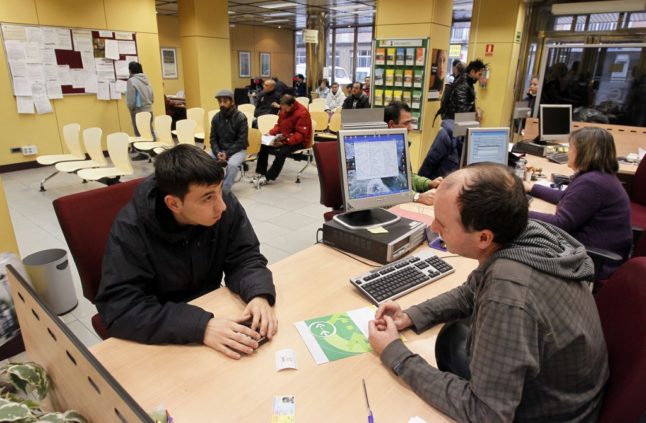When it comes to finding work in Spain, it’s often more about who you know than what you know.
Some call it ‘looking out for friends or loved ones’, others cronyism. What’s clear is that getting the intel on a job that’s newly available and potentially getting hired because of your contact is part and parcel of work matters in Spain.
Spaniards even have a word for it – enchufe – which can be understood as being ‘plugged’ into a job as a result of your connections.
A work survey by Spain’s National Statistics Institute reveals how when it comes to looking for work, the first port call for Spanish jobseekers is the people they know.
A total of 57.8 percent of surveyed respondents said they asked family or friends about any jobs they knew were available, making it the most common way to look for work in Spain.
This was followed by looking at job ads (48.1 percent), contacting companies and employers directly (41 percent), updating their CVs (35.4 percent), replying or posting job ads (34.6 percent), contacting a public job seekers’ agency (20.4 percent) or a private one (15.12 percent).
In a 2020 study by Spain’s National Research Council, 40 percent of Spaniards admitted they’d gotten a job thanks to a close contact, with family members being the first to help them get their foot in the door.
So it’s perhaps no surprise that Spaniards are three times more likely to first ask their circle if they know of a job that’s up for grabs rather than going to their local unemployment office to enquire.
Although this way of doing ‘business’ may seem frustrating to Northern Europeans in Spain, similar Eurostat studies have revealed that in countries such as the Czech Republic (87 percent), Greece (88 percent) and Romania (96 percent) it’s even more common to ask friends or family first, whereas in Spain it happens in 72 percent of cases according to the European stats body.
Interestingly, one 2.1 percent of unemployed respondents in the INE survey said they’d begun making plans to set up their own businesses.
By contrast, data from Spain’s self-employment department RETA shows that the number of foreigners who are becoming autónomos in the country is increasing at a faster rate, with 20,000 new inscriptions every year.
“The lingering issue of Spain’s labour market is the intermediation between those looking for work and those offering it,” Asempleo, a Spanish association of recruitment agencies, told El Economista.



 Please whitelist us to continue reading.
Please whitelist us to continue reading.
Member comments